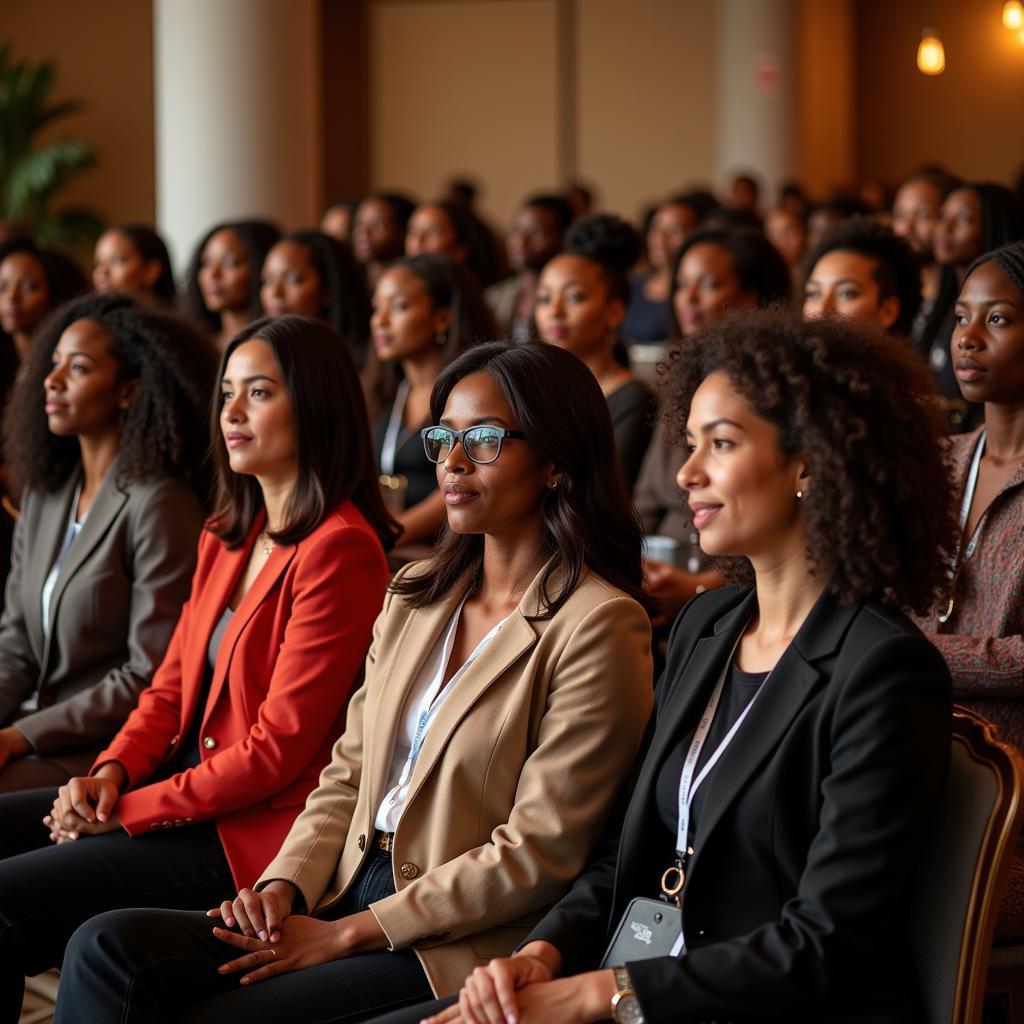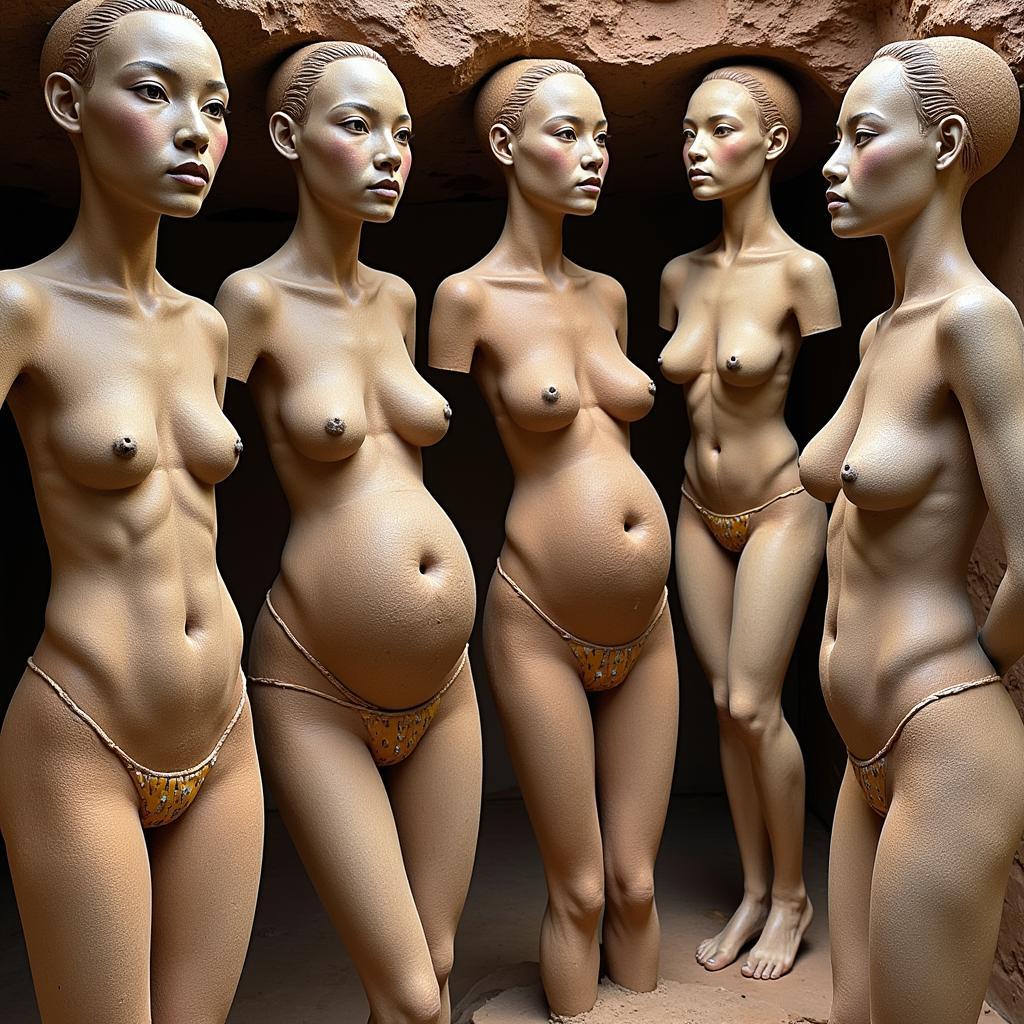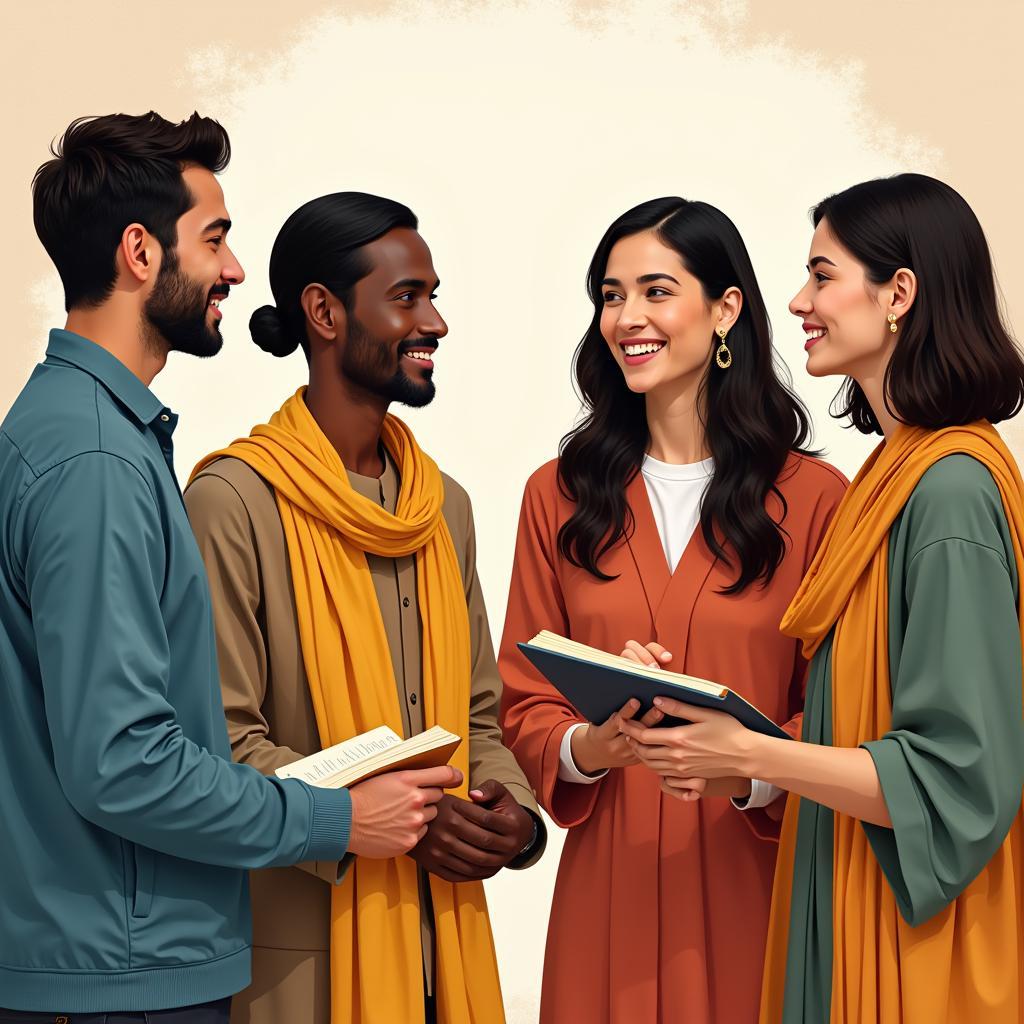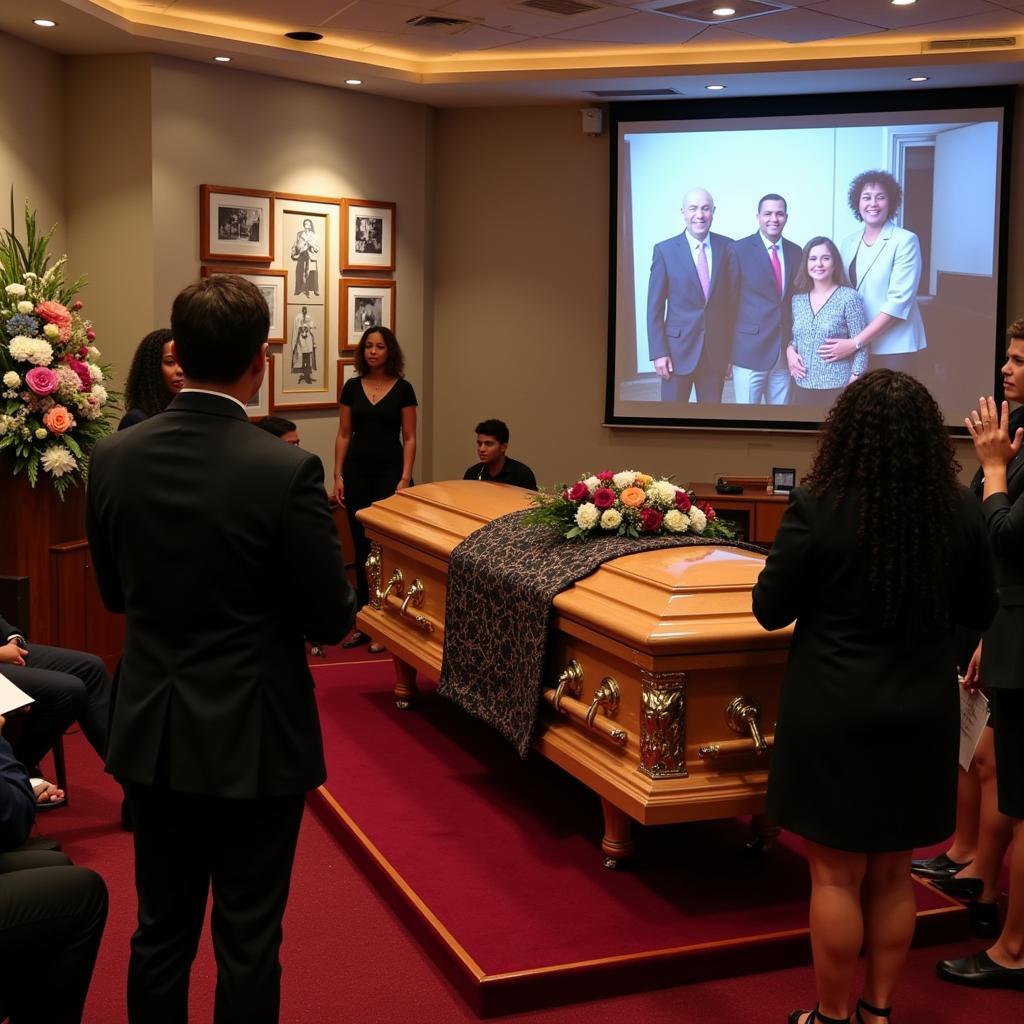Exploring the Rich Tapestry of African American Folktales
African American Folktales represent a vibrant and essential thread in the tapestry of American storytelling. Passed down through generations, these narratives offer a captivating glimpse into the history, culture, beliefs, and struggles of African Americans. These stories, far from being mere children’s tales, often carry profound messages about resilience, resistance, and the enduring human spirit. They also serve as a powerful tool for preserving cultural heritage and promoting understanding across cultures.
The Significance of African American Folktales
These folktales are more than just entertaining stories; they are a crucial part of African American history and identity. They provide a window into the past, reflecting the experiences of enslaved Africans and their descendants as they navigated a challenging and often hostile world. These narratives served as a means of communication, education, and cultural preservation, passing down vital knowledge and values from one generation to the next.
Themes and Motifs in African American Folktales
Many recurring themes and motifs weave their way through African American folktales. Trickster figures like Brer Rabbit and Anansi the Spider use their cunning and wit to outsmart larger, more powerful adversaries, offering a subtle commentary on the power dynamics of the time. Animal tales, often rooted in West African traditions, explore universal human experiences through the lens of the animal kingdom. Themes of resilience, resistance, and the quest for freedom are prevalent, reflecting the historical context in which these stories were created and shared.
Another common theme is the importance of community and family. Folktales often emphasize the strength and support found within the African American community, highlighting the crucial role of kinship and collective action in overcoming adversity. These stories also touch on spiritual beliefs and the power of faith, reflecting the deep religious traditions within African American culture.
The Power of Oral Tradition
African American folktales were primarily transmitted through oral tradition, passed down through storytelling from one generation to the next. This oral tradition allowed the stories to evolve and adapt over time, reflecting the changing circumstances and experiences of the community. The act of storytelling itself became a powerful form of connection, fostering a sense of shared identity and cultural continuity.
Preserving Cultural Heritage Through Storytelling
The preservation of these folktales is vital for maintaining a connection to African American heritage. These stories provide invaluable insights into the cultural values, beliefs, and traditions that have shaped the community. They offer a unique perspective on the African American experience, enriching our understanding of American history and culture as a whole.
“African American folktales are more than just stories,” explains Dr. Amani Jabari, a professor of African American Studies at Howard University. “They are a living archive of our history, culture, and resilience.”
The Influence of African Folktales
The roots of many African American folktales can be traced back to West Africa, reflecting the cultural connections that endured despite the horrors of the transatlantic slave trade. These stories often feature similar characters, themes, and motifs, highlighting the enduring influence of African storytelling traditions.
Adaptations and Retellings
African American folktales continue to inspire and influence contemporary literature, music, and art. These stories have been adapted and reinterpreted in countless ways, demonstrating their enduring relevance and power. From children’s books to Broadway musicals, these narratives continue to captivate audiences and spark important conversations about race, identity, and social justice.
“The enduring power of these folktales lies in their ability to connect us to our past while also inspiring us to create a better future,” says renowned storyteller and author, Elder Griot Mamadou Sory.
Conclusion
African American folktales are a vital part of American cultural heritage, offering a window into the history, beliefs, and experiences of African Americans. These stories, passed down through generations, continue to resonate with audiences today, reminding us of the power of storytelling, the importance of cultural preservation, and the enduring human spirit. These narratives provide invaluable insights into the rich tapestry of African American culture and contribute significantly to our understanding of the human experience.
FAQ
-
What are some common themes in African American folktales? Common themes include trickery, resilience, community, and the quest for freedom.
-
How were these folktales traditionally passed down? Primarily through oral tradition, from one generation to the next.
-
Why are African American folktales important? They preserve cultural heritage, offer historical insights, and promote intercultural understanding.
-
What is the role of the trickster figure in these stories? Tricksters often represent the underdog, using wit and cunning to overcome more powerful adversaries.
-
How do African American folktales connect to African traditions? Many share similar characters, themes, and motifs, reflecting their West African roots.
-
Where can I find more information on African American folktales? Libraries, online resources, and cultural centers offer valuable resources.
-
How are these folktales relevant today? They continue to inspire contemporary art, literature, and discussions on social justice.
Need Support?
Contact us 24/7 for assistance:
Phone Number: +255768904061
Email: kaka.mag@gmail.com
Address: Mbarali DC Mawindi, Kangaga, Tanzania.





